
17 Plays Every Actor Needs to Know
Engage with Dramatic Language
Contributed with intelligence by staff writer Russell Sperberg
It’s important to be constantly learning. At TK Studio, we get questions all the time about what we should be reading. Here is a list of Terry Knickerbocker’s recommendations to get started on the wonderful world of plays every Meisner actor needs to know.
These 17 plays are vital reading for any actor who wants to be the best they can be.
Hamlet – William Shakespeare

Yes, you know Hamlet. We all technically know Hamlet. But there’s a reason for that. It’s. That. Good. Sometimes thrilling, sometimes philosophical, the play centers on the Prince of Denmark as he struggles to figure out if his father was murdered by his uncle. As he tries to confront the evil that men do, his own sanity is called into question. Through this beautiful tragedy, Shakespeare asks us eternal questions about death and the nature of life.
King Lear – William Shakespeare
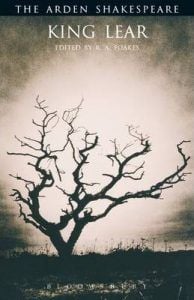
Besides perhaps Hamlet, no tragedy looms larger than the thrilling, moving King Lear. When the aging king decides to divide his kingdom, he sets up a battle within both the country and his family. As chaos ensues, the audience witnesses a funny and devastating portrayal of madness and old age. Amidst the abject greed and extreme violence are beautiful moments of love and kindness. More than anything, Lear is a heartbreaking tale about the love a father has for his daughter.
The Tempest – William Shakespeare

It’s weird. It’s magical. It’s wonderful. Told in real time, The Tempest follows Prospero, a deposed Duke-turned-wizard plotting revenge on his deposing brother and fellow enemies, recently shipwrecked on Prospero’s island. Featuring a bevy of spirits, creatures, clowns, and young lovers, The Tempest covers the gamut, from tragedy to farce to romance. Above all else, Shakespeare’s last play is about forgiving enemies and saying goodbye. Is it Prospero bidding farewell at the end, or is it Shakespeare?
Tartuffe – Molière

When Tartuffe was first performed, King Louis XIV censored it for being too scandalous. That’s because Tartuffe aims its sights at religious hypocrisy. Molière’s play is light and frothy but also damning. In it, the supposedly pious Tartuffe uses religion as a shield while he seduces and swindles the house of Orgon. Molière’s take on false piety still has its bite today. Check out Richard Wilbur’s English translation to see how rhyming couplets can still be savage.
A Doll’s House – Henrik Ibsen

In forgoing fantasy and choosing to instead focus on contemporary social problems, Ibsen ushered in the new era of realism all the way back in 1879. Not surprisingly, the story is still relevant today. Nora, a housewife, struggles to find personal fulfillment in a world run by men. When she leaves her family and goes out on her own, we’re shocked but also sympathetic to this complex woman. You may not agree with Nora’s decision, but you understand it.
Miss Julie – August Strindberg
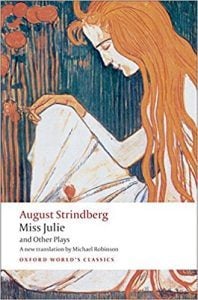
Sure, Strindberg’s famous preface to this play may be a liiiiiittle sexist, but he does get points for introducing psychology and naturalism to the stage. Written in 1888, Miss Julie tells the story of a young countess and her valet’s passionate relationship over Midsummer’s Eve. Strindberg was inspired by Charles Darwin; Julie and Jean’s conversation becomes a matter of life and death as the cunning Jean outsmarts the supposedly stilted, unequipped aristocrat. Psychology and passion take center stage in this precursor to contemporary theatre.
The Seagull – Anton Chekhov

Though writer Anton Chekhov and director Constantin Stanislavsky disagreed on whether or not The Seagull is, in fact, a comedy, their collaboration was legendary. Chekhov’s refusal to clarify the story – a lot of talking, not a lot of onstage action – meant Stanislavsky and his ensemble had to dig deep and find the subtext of the piece. The result was singular. The fading actresses and young writers in this play are weird, impassioned and human. Even today, the play seems revolutionary.
The Importance of Being Earnest – Oscar Wilde
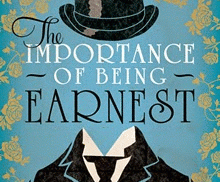
Wilde’s classic farce is pure fun throughout. He skewers Victorian society and social mores in this tale of duplicity and love, making Earnest that rare Victorian comedy without an important social message. And that’s Wilde’s point. Enjoy the ride and admire the art for its own sake. Earnest is an expertly crafted play bursting at the seams with physical humor and witty dialogue. (Can you catch the pun in the title?)
A Streetcar Named Desire – Tennessee Williams

No one is better than Tennessee Williams at capturing the dark, sexual poetry of everyday life. Indeed, Williams takes the story of a woman visiting her sister and brother-in-law and transforms it into full-on gothic drama. Blanche DuBois, an aging Southern belle, butts heads with her brother-in-law Stanley in a psychological battle of will and temptation. Passion is Williams’s focus, and we certainly get it, along with its tragic consequences. Streetcar is a brooding, swaggering fever dream journey.
Long Day’s Journey Into Night – Eugene O’Neill
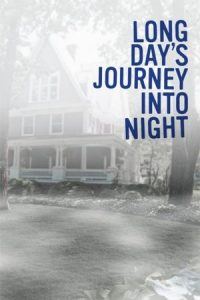
O’Neill was one of the first playwrights to write in the vernacular, but don’t let that fool you – this play is about as everyday as a Greek tragedy. Based on O’Neill’s own life (?!?!?!?!), the play tells the story of the Tyrone family. Try as they might to move on from pain and disillusionment, they can’t escape their traumatic past. The play is no picnic, but it is a blistering, worthwhile look into one family’s life.
Death of a Salesman – Arthur Miller
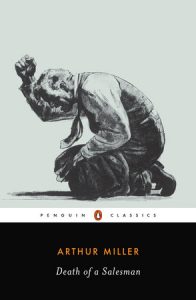
Miller is in full-on mythological mode as he tackles that biggest of topics, the American Dream. Willy Loman, a down on his luck salesman, and his family may seem like simple people, but to Miller they’re tragic heroes. With flashbacks and dream sequences, he puts you inside Willy’s head – you feel Willy’s pain as he struggles to make ends meet. Tragedy and humanity are profound parts of our lives. Sometimes you need a great play to see them.
Waiting for Godot – Samuel Beckett
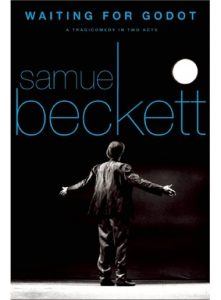
Part vaudeville routine, part existential quandary, Waiting for Godot seems impossible on paper: Nothing happens; a couple of tramps spend the entire time onstage waiting for someone to show up; they debate leaving; they don’t. But somehow it works. The tramps Vladimir and Estragon talk themselves in seemingly meaningless circles, but it somehow becomes a touching discussion of life and its absurdities. Godot mashes high and low culture together in a way that is still exciting and mysterious today.
Who’s Afraid of Virginia Woolf? – Edward Albee

Albee’s first full-length play is a dazzling combination of realism and absurdity. Martha and George, a boozing, older university couple, welcome Nick and Honey to their home one night. The couples share stories and jokes, but it becomes clear that something just isn’t right. The young couple become pawns in Martha and George’s ongoing battle. Reality and fiction blur with devastating results. Albee knew how to create drama. Sometimes it’s absurd. Oftentimes it’s violent. But it’s always riveting.
Fences – August Wilson
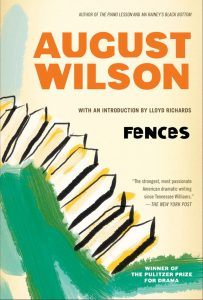
In Fences, Wilson tells the story of Troy Maxson, a former Negro League baseball player now working as a garbage man struggling to reconcile his past life with the needs of family. The characters may clash, but Wilson shows how each one has forged a fierce, proud journey towards selfhood. No one can beat Wilson’s ear for dialogue, which doesn’t so much turn vernacular into poetry as much as make you realize that vernacular has always been poetry.
Betrayal – Harold Pinter
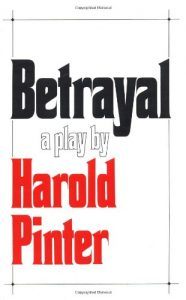
Language is never the point in Pinter’s work – it’s what goes unsaid that is far more meaningful. Betrayal depicts a love triangle as thorny and opaque as Pinter’s sentences. A woman has an affair with her husband’s best friend, and he doesn’t know. Or does he? Love is betrayal in this masterfully-told story. Presented in reverse-chronological order, the play refuses to let the audience feel just one thing. As with most love, there is pain and joy in every moment.
Top Girls – Caryl Churchill
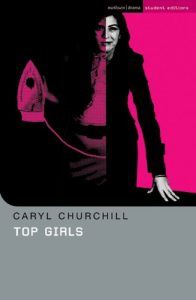
Churchill’s 1982 play about feminism and power is still relevant today. Fantastical and non-linear, the story centers on Marlene, a career businesswoman who encounters famous powerful women from history. Lo and behold, they all have something in common: their fight against the patriarchy. The women commiserate and discuss balancing personal and professional lives. Most astoundingly, Top Girls makes you wonder if women can use the patriarchy to help other women or if it’ll just swallow them whole.
Angels in America – Tony Kushner
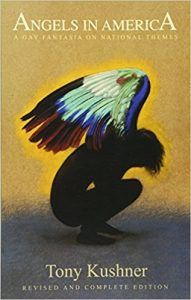
On paper, Kushner’s two-part play makes little sense. A saga about the AIDS crisis that interweaves politics, Mormonism, gay life, and heavenly bodies may seem cumbersome, but onstage it’s awe-inspiring. You may be able to see the wires holding the angel up, but that’s doesn’t make it any less magical. Words and ideas are the real magic in this play. They scream out to us, and when we sit down in a theatre to hear them, it’s impossible not to listen.
Want to learn even more?
Terry Knickerbocker Studio offers comprehensive Two-Year Conservatory rooted in the Meisner technique, in a state of the art facility in Brooklyn, New York.
Interview Today for the Fall Conservatory or the Summer Intensive
Fill out an Application Here
Call 718-801-8999